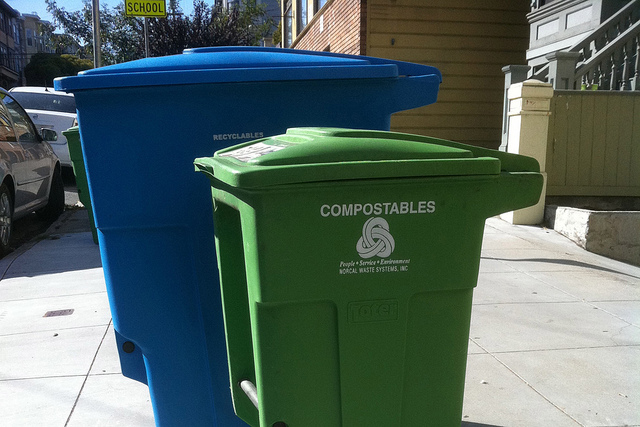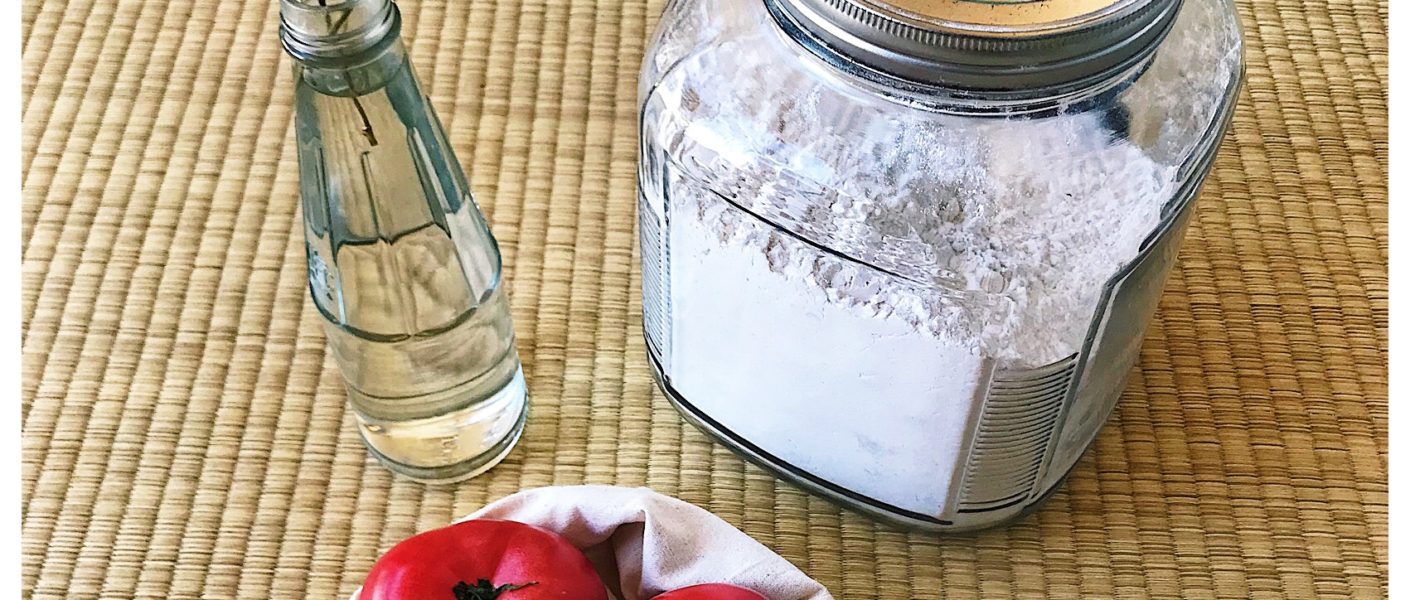If you’re familiar with the zero waste movement, you may have already heard of the 5 R’s: refuse, reduce, reuse, recycle and rot, in that order.
This method originated from Bea Johnson, the founder of the zero waste lifestyle movement. In 2013, she published Zero Waste Home. This book brought the phrase “zero waste” into the public eye and sparked an inspiring movement that changed the world (and is continuing to do so)!

One of the ways she helped her family limit the trash coming into their home was by implementing the 5 R’s. With the phrase “zero waste” seeming almost impossible, Bea introduced a simple methodology that anybody embarking on a waste reduction journey can follow.
If you get overwhelmed by trying to lead a more eco-friendly lifestyle, the 5 R’s are exactly what you need. With just five simple key words, this guide will help you take control of your buying habits and consumption.
1. Refuse
The easiest way to avoid trash in your home is to refuse it entirely. Ask yourself if you need it. Take pictures of business cards. Don’t take the free toiletries at the hotel. Refuse to buy cheaply made products. Say no to freebies. Do you really need another free pen, or refrigerator magnet? Everything you consume (even when it’s free!) produces a demand to manufacture more.

In Japan, there are often solicitors handing out small packs of tissues that have an advertisement printed inside. In a culture based around politeness and good manners, I initially found it hard to refuse taking the tissues. Now, I simply bow slightly and put my hand up slightly to indicate I don’t need the tissues.
Saying no is healthy. Not just for the environment, but for your personal sense of identity. Being able to have boundaries, say no firmly, and stand up for the environment feels good. Don’t take my word for it, try it out yourself!
2. Reduce
If you’ve been swept up in the wave of decluttering that’s sweeping our nation, (shoutout to Marie Kondo!), maybe you’re already starting to realize that you can significantly reduce the amount of what you own, and actually be happier. Having less of the things that don’t matter means that you can focus on the things that do. Shop with a purpose and focus on sustainable purchases that will last long-term.

How much of what you’re bringing into your home do you actually need? Do you need 20 scarves, 30 pairs of shoes, all those stacks of DVDs? More often than not, many of our purchases get pushed to the back of the closet and don’t even get used. The average American woman only wears an article of clothing 4 times. As a society we purchase 400% more clothing than we did 20 years ago. Our throwaway culture and careless habits of hyper-consumerism are taking a grim toll on our planet’s future.
3. Reuse (and Repair)
Use reusables. Reusable straws, cutlery, shopping bags, jars, paper towels…you name it! Lucky for those of us who are joining the no-plastic bandwagon a little late in the game, there are TONS of eco-friendly alternatives out there.
Reuse items you already own. I’ve been tempted to buy a stainless steel water bottle SO many times recently, but have resisted so far. Instead, I’ve opted for drinking out of a mason jar for when I’m home and using a reusable plastic bottle that I’ve had for ages when I leave the house.
Speaking of mason jars, the uses for these are endless! I’ve started freezing in glass jars, and haven’t broken one yet! My husband takes his lunch in mason jars, I use them to store dry goods in my pantry, I put my homemade body butter in them…you can use them all over the house!
Repair what’s broken. Learning how to use a simple needle and thread to fix that ripped stitch can go a long way. Upcycling what you already have is key to reducing your waste, it’ll save you money, and it’s great for the environment too.
4. Recycle
I used to think that recycling in itself was the solution to our waste problem. However, I’ve learned that recycling is just a small band-aid on a huge issue. Recycle only as a last resort. If you can’t refuse, reduce or reuse it, then yes–recycle. When buying new, opt for glass, cardboard or metal–it has a much better chance of actually being recycled. Plastic is often shipped across the world for recycling and often just ends up as litter or in our oceans.

5. Rot
Lastly, find a method of composting that’s right for you. If you have your own yard space, go for a compost bin. If you’re on a farm, you can have a compost pile. Zero wasters who live in apartments can look into having an indoor composting system. Maybe your city has adopted a compost collection system that you can utilize!

Regardless of where you are in your waste reduction journey, the five R’s provide you with an easy guide to keep your eyes on the prize. Speaking for myself, I’m only at the beginning of this journey and I’m far from perfect. However, having these 5 R’s in my back pocket serves as a gentle reminder of how to be a conscious consumer in my everyday life.
Here’s hoping they can do the same for you.



